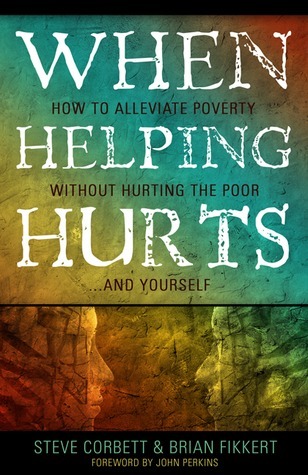What do you think?
Rate this book


232 pages, Paperback
First published June 24, 2009
But what if this person's fundamental problem is not having the self-discipline to keep a stable job? Simply giving this person money is treating the symptoms rather than the underlying disease and will enable him to continue with his lack of self-discipline... A better – and far more costly – solution would be for your church to develop a relationship with this person, a relationship that says, "We are here to walk with you and to help you use your gifts and abilities to avoid being in this situation in the future. Let us into your life and let us work with you to determine the reason you are in this predicament."It's difficult to imagine a more patronising approach. And the framing of the hypothetical is convenient and self-serving – the imaginary beggar's problem is a lack of self-discipline, not chronic poverty, not structural unemployment, not health- or education-related debt, just to name a few... Oh, and I'm pretty sure that doctors treat symptoms (as well as the underlying disease) all the time – it's really not an either/or.
The problem [of poverty] goes well beyond the material dimension, so the solutions must go beyond the material as well.However, this is to confuse the effects or experiences of poverty (including shame, powerlessness, isolation, etc.) with its essence (material deprivation), poverty's marks for its meaning.
The professor reached into his pocket and lent Sufiya and forty-one of her neighbors a total of twenty-seven dollars. To the amazement of observers, the loans were fully repaid on time. Contrary to the received wisdom, it was possible to lend money to very poor people and get it paid back.As if the main issue to be considered with microfinance is the rate of return for lenders!
Despite an estimated $2.3 trillion in foreign aid dispensed from Western nations during the post-World War II era, more than 2.5 billion people, approximately 40 per cent of the world's population, still live on less than two dollars a day.